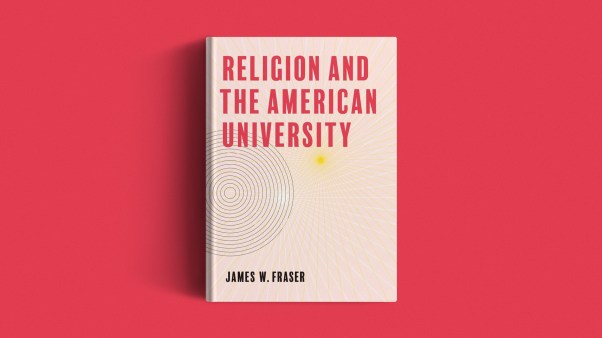Most movies that feature the 1962 Cuban Missile Crisis (e.g., the Kevin Costner flick Thirteen Days) are at once excessively serious and excruciatingly dull. Not so the 1993 Joe Dante production Matinee, a comedy about young love amidst improbable circumstances. In the movie’s most memorable line, a concerned mother in the southern Florida town explains to her son that if there is a nuclear detonation, he should look away from the blast; then stop, drop, and cover; and then come right home.
Fair or not, that was the line that kept coming to mind as I read When Every Moment Counts: What You Need to Know About Bioterrorism from the Senate’s Only Doctor, by Senator Bill Frist, M.D. (R-Tenn.). Any honest reader will admit that Frist means well, but we’re often left wondering if he doesn’t completely miss the point.
The book begins with a retelling of the story of the anthrax letters, delivered to Congress via the offices of senators Daschle (D-S.D.) and Leahy (D-Vmt.) in October of last year, that shut the House down for several days, made a few congressional buildings unusable until months later and almost caused mass pandemonium. During this time, Frist, as the “Senate’s only doctor” (there are several in the house), was constantly asked for advice and information from concerned colleagues and staffers. This massive concern from those in and outside government led to the Centers for Disease Control‘s Website being overtaxed and then crashing. Other information resources were similarly strained.
In response, Frist turned his own Website into a hub of information, ordering his staffers to maintain and update the site around the clock. He responded to many queries for information with a terse (but one, assumes, friendly), “Go to the Website,” and mentioned it when he was on television. As a result, a lot of people—as many as 40,000 per day—started to access the Website. Frist realized then that people were “hungry for knowledge,” a gap which When Every Moment Counts attempts to fill.
As far as plugging the information gap goes, the book does a tolerably good job. Frist performs the family doctor routine: answering well over a hundred questions with sufficient detail to inform the ordinary reader but not so much as to be daunting. And his advice is often sensible. For instance, he does not recommend that everybody go out and buy expensive gas masks, for although a gas mask can “reduce inhalation exposure by 98 percent” such a protective device is “effective only if you are wearing it at the time of [a biological weapon] attack.” Since would-be terrorists are unlikely to announce attacks ahead of time, equipping everyone with gas masks might not be the most cost-effective approach.
Also interesting, though by no means earth-shattering, are the gray sidebars near the end of each chapter, which relate the histories of various would-be weapons of mass destruction. Readers learn that, during World War II, Japanese soldiers tested dozens of biological and chemical weapons on their Chinese prisoners, with gruesome results. We are also repeatedly informed that the Soviet Union abrogated the chemical weapons treaties that it signed in order to stew all kinds of deadly concoctions to rain down on the U.S., but that most of the casualties occurred in the former U.S.S.R., when laboratory accidents occasionally led to outbreaks.
Looking at the anthrax letters, the problem, as Frist diagnoses it, is that the U.S. government wasn’t “scientifically prepared.” Hence the last chapter of his book uses the question-and-answer format to advance an argument about what steps the government needs to take in order to combat future acts of bioterror. For example, the Food and Drug Administration’s staff should be increased, and the fda should be given more control to block food shipments from other countries. More funds need to be made available to coordinate medical information. A National Guard-like shock corps of surgeons and experts should be put together to be transported, at a few hours’ notice, to any problem spot. And so on.
Considered individually, these suggestions may or may not have their merits—I personally shudder at giving the fda more authority, given that agency’s ongoing jihad on smokers—but, collectively, the fixes are a few fingers in a dike, at best. The uncomfortable reality—which Frist himself acknowledges even while trying to put a brave face on it—is that future chemical or biological attacks may be frequent, well nigh impossible to predict, and very taxing to deal with.
Frist notes, optimistically, that Japan’s Aum Shinrikyo cult spent tens of millions of dollars attempting to put together a biological weapons program yet in the end were only able to kill a handful of people in a sarin gas attack in the Tokyo subway in 1995. True, but Aum Shinrikyo was also a nutjob clandestine apocalyptic cult whose guru, Shoko Asahara, invited one of the prosecution’s witnesses in the trial to come levitate with him. In the case of Osama bin Laden’s organization and its imitators, the Bush administration has alleged, whole governments are plotting America’s ruin, and are allowed to proceed largely unmolested. As long as this status quo continues, the U.S., with its waterways, roads, bridges, eateries and population centers, might as well be one fat target.
The only solution that is likely to have even a chance of working is to aggressively disrupt terrorist networks and either cow other governments into participating in this disruption or to “disrupt” the intransigent governments themselves. Any marksman will admit that it’s very difficult to concentrate on hitting a target—even a big fat one—when there’s a rock rapidly approaching your head.
In contrast, Frist’s approach is primarily reactive; it’s about treating the symptoms once they’ve developed. Even if fully implemented, his vision would solve few problems and save few lives while diverting resources away from approaches that are much more likely to bear fruit. “Stop, drop and cover” was a catchy slogan, and it may have given a few people a much-needed (if false) sense of security. But if the big one had dropped, it certainly wouldn’t have counted for much.
Jeremy Lott is the 2002 Burton C. Gray Memorial Intern for Reason magazine.
Copyright © 2002 Christianity Today. Click for reprint information.
Related Elsewhere
Visit Books & Culture online at BooksandCulture.com or subscribe here.
Methodists Debate Rebaptism of Converts from Mormonism | At Salt Lake City meeting, some propose resolution “[not] to declare non-Christian a church which understands itself to be Christian” (Salt Lake Tribune, via HolyWeblog.com)
Gay minister won’t lose post as pastor | United Methodist Church yesterday dismissed its case against the Rev. Mark Williams (Seattle Times)
Finding God in a Pickle | Good gourd! Vegetables retelling Bible stories are such a hit with kids, they’re going to the big screen (Time)








